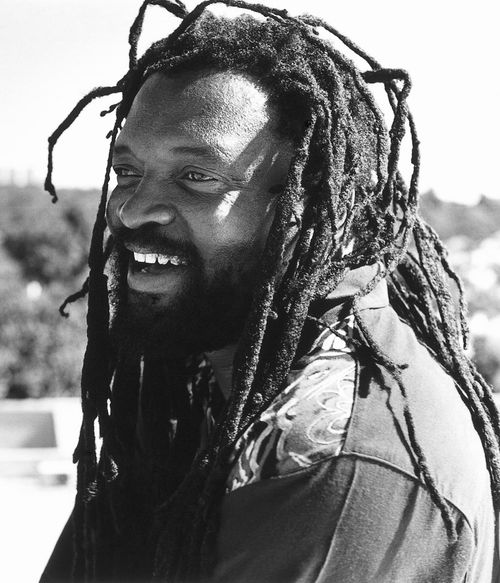INTRODUCTION
In the darkest days of apartheid South Africa, when bullets spoke louder than ballots and voices were silenced, a man named Lucky Dube with dreadlocks and a guitar rose not just to sing, but to spark a revolution in rhythm. Like more than a reggae icon, he became a continental conscience.
He was born in 1964 in the small town of Ermelo, Mpumalanga. Lucky was raised by his mother, Sarah. He was named Lucky because he survived a difficult birth and early childhood illnesses. Initially, he sang mbaqanga, a traditional Zulu pop genre with his band, The Love Brothers but something in him yearned for more than dancing tunes. It wasn’t until he encountered the music of Bob Marley that he discovered reggae and in reggae, he found his voice and his mission.
REGGAE AS A MOVEMENT
Switching to reggae in the mid-1980s was a bold move in apartheid-era South Africa. It was more than a genre, it was a rebellion. Reggae was banned from many local stations. Lyrics had to be coded to escape government censorship but Lucky’s music was fearless.
Albums like Prisoner, Slave, Together as One, and House of Exile weren’t just hits, they were acts of protest. Through poetic metaphors and haunting melodies, he told stories the news wouldn’t tell. He sang of inequality, police brutality, racism, and the dream of a free Africa. Somehow, even in the fire, his voice remained tender. He didn’t scream at the world, he pleaded with it.
WHAT MADE LUCKY DUBE DIFFERENT
What made Lucky Dube different was how deeply African his message was. While his sound echoed Jamaican roots, his lyrics beat with the heart of Africa. From Nairobi to Accra, Harare to Kigali, his songs became anthems for a generation raised on both struggle and hope. He wasn’t just talking to South Africans, he was talking to all of us. Unlike many reggae stars, Lucky didn’t sing about revenge or violence. His message was about unity, Pan-Africanism and spiritual awakening. He reminded us that freedom is not about overpowering others, but about lifting each other.
By the early 1990s, Lucky had become the first African reggae artist signed to an international label. He toured the globe France, Australia, the Caribbean, and the US. Everywhere he went, he drew crowds of thousands and yet he never abandoned his roots. Despite comparisons to Bob Marley, he remained uniquely South African in both accent and essence. Where Marley gave the world Rastafari, Lucky gave us Ubuntu. His personal life reflected his humble, private, and intentional lyrics. He wasn’t involved with scandals or fame-chasing. He was just ust a man with a mission and a mic.
A DEATH THAT SHOOK THE CONTINENT
On October 18, 2007, tragedy struck, Lucky Dube was shot and killed during a carjacking in Rosettenville, Johannesburg, just minutes after dropping his teenage son at school. The news rocked the continent. His fans wept openly and tributes poured in from presidents, artists, activists, and the millions of ordinary Africans he had touched. But like every true prophet, his voice didn’t die. His songs especially Different Colours, One People, became even louder in his absence.
CONCLUSION
Lucky Dube was more than a legend. He was a vessel, a storyteller and a man who turned pain into poetry and rhythms into revolution. His voice belongs to all of us who have ever yearned for freedom, not just political freedom, but the kind that lets you walk tall in your skin, love your neighbor, and hope without shame.
So when you play Remember Me, The Way It Is, or Back to My Roots, you’re not just listening to music. You’re hearing the voice of Africa, refusing to be silenced.
Which Lucky Dube song shaped your view of the world? Share your thoughts in the comment section and explore more African legends here on RichlyAfrican.org.

